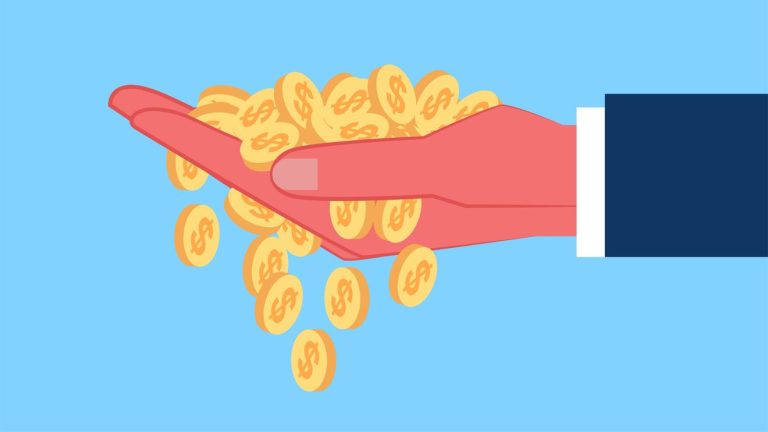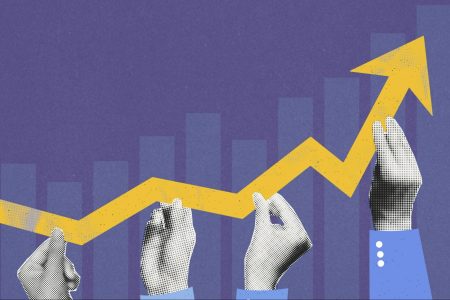Corporate America is on a buyback bender.
Lowe’s
LOW,
for instance, blew through $14.1 billion in stock repurchases last year. That would have been enough to give each of the company’s 301,000 U.S. employees a $46,923 bonus. Instead, the retailer’s median worker earned just $29,584 in 2022.
After two years in which the largest U.S. companies dropped record sums on stock buybacks, Congress and the White House have taken some steps to discourage this destructive practice. But much more should be done to crack down on this once-illegal form of market manipulation — and the huge pay gaps between chief executives and workers that it helps drive.
When companies repurchase shares of their own stock, they reduce the supply on the open market, artificially pumping up the share price and thus their CEOs’ stock-based compensation. Buybacks are a clear sign that corporate leaders are fixated on the short-term interests of wealthy executives and shareholders rather than on worker welfare and long-term, productive investment.
A new Institute for Policy Studies report I wrote looks at buyback activity at the S&P 500
SPX
firms with the lowest median pay levels, a group we’ve dubbed the “Low-Wage 100.” Between Jan. 1, 2020, and May 31 of this year, these firms reported stock-buyback outlays totaling $341 billion.
For CEOs, this gusher created huge windfalls that had zilch to do with their managerial performance. Their personal stockholdings soared 33% during this period to an average of $185 million, while median pay at their companies rose only 10%, to $31,972.
At Lowe’s, CEO Marvin Ellison’s personal shareholdings grew even faster — by an estimated 754%, to $108 million.
Other top big-box chains were major buyback bingers, as well.
With Walmart’s
WMT,
nearly $10 billion in buybacks, the country’s largest employer could’ve given each of its 1.6 million U.S. employees a $6,166 bonus. That would have paid a lot of bills for Walmart’s rank and file, half of whom made less than $27,136 last year. CEO Doug McMillon, meanwhile, has amassed nearly $285 million worth of his company’s stock.
Home Depot’s
HD,
$6.6 billion spree last year was enough to give all 418,900 of its U.S. employees a $15,833 bonus. Instead, the firm’s median worker pay remained at $30,100. Edward Decker, who took the company’s helm in 2022, holds more than $50 million in company stock.
The buyback frenzy has provoked calls for a return to rules like those from the pre-1982 era, when these maneuvers were largely banned. Washington officials haven’t gone that far yet, but they have taken some important actions.
Citing research on reduced capital investment and innovation at firms that buy back their own stock, Congress passed a 1% excise tax on share repurchases as part of the Inflation Reduction Act last year. President Joe Biden has said he would like to see that rate quadrupled.
Biden is also starting to wield the power of the public purse: Firms that kick the buyback habit will get a leg up in the bidding competition for $39 billion in new semiconductor-manufacturing subsidies.
“In selecting projects,” the Commerce Department’s guidelines say, “the Department will give preference in awards to companies who commit to make future investments” in “research and development, workforce training, or manufacturing investments and not engage in stock buybacks.” Similar disincentives should apply to all corporations receiving taxpayer-funded contracts and subsidies.
Biden also wants to ban top executives from selling their personal stock for a certain period after a buyback. A Senate bill, the ALIGN Act, would do just that.
The blowback against buybacks is encouraging. But buybacks are only one of the reasons that CEOs of Low-Wage 100 companies now make, on average, 603 times what their median workers take home. Fixing that problem requires a bigger toolbox.
Another key tool? Tax policy.
Two major cities are already showing the way. San Francisco and Portland, Ore., have hiked tax rates on companies with wide CEO-worker pay gaps, creating an incentive to both rein in executive pay and lift up worker wages, all while generating significant new capital for public investments. San Francisco’s Overpaid Executive Tax, in effect since last year, is bringing in about $125 million per year to help pay teacher and firefighter salaries and fund other urgent needs.
Similar legislation has been introduced in the U.S. House and Senate.
Washington regulators also need to stop dragging their feet and implement a Wall Street executive pay restriction that is part of the 2010 Dodd-Frank financial reform but has never been enforced.
Ordinary Americans across the political spectrum are fed up with the CEO binge-fest. It’s time for a bolder intervention to ensure that the fruits of everyone’s labor are equitably shared.
Sarah Anderson directs the Global Economy Project and co-edits Inequality.org at the Institute for Policy Studies. She is the author of the new IPS report Executive Excess 2023.
Read the full article here









